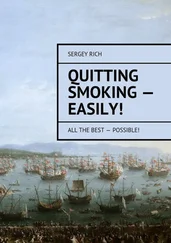Eva turned over a dozen names in her mind, unable to decide which one she liked best until
She thought of the neighbor’s child, four years of age, fat and happy,
Whom Eva had looked at fondly and fondled during her barren unhappy years. His name was Harold, but he called himself Hershey, a German version, because he was obsessed with chocolate, and amused adults had come to call him Hershey, Hershey Bar, struck by the quaintness,
Extending the smile of amusement at the child with this poem. And Eva had vowed in a moment of delight with the child, that if she had a child, she would name him Hershey, for, looking at him, she saw the image of what she wanted her child to be:
She decided in a moment, Baby Green was named Hershey, howling his pain and ignorance when his foreskin was cut,
And all thought twenty years in advance of the next generation—
“Lo, with what tenderness he speaks his name,
As if he spoke a scandal or a fame!”
“Why not? It is a sign of the self’s darkness,
The private darkness of the individual
The anguished darkness of the struggling will,
The sound which means the ego is alone,
The bass of harbor boats, alone, alone!
The pathos of departure’s fogbound moan,
The self’s self-exile from the womb and home—”
“The basis of the art of poetry,
The hard identity felt in the bone—”
“The basis of the art of music, too,
The self-same darkness flows from orchestras,
The brilliant congress of the instruments
Merely goes walking in what wilderness—”
“His name might have been Noah: beautiful!
Suggests so much a boat on desperate seas—”
“Hershey, I think, is best, the Hershey Bar,
A bitter chocolate or a milk sweet chocolate
— Such is the self, knowing and gnawing the body,
When the decayed teeth of the Pleasure-Principle
Bite it, by the sweet senses’ candies pained!”
“There is a joke which grows within my mind:
Here is a stadium and cheering crowd,
Pigeons pass overhead, and one lets go
(Nature’s necessities are all his life),
— The one man wet amid the 70,000
Cries out, Here are 70,000 faces,
Why did that pigeon have to pick on me?
— The joke of individuality!
O what a practical joke on everyone,
Something is always new under the sun!”
“Enough, dear friend in this, the last illness,
Now let us shift the image for the boy—”
“Let us regard the deities once more,
Augment his story with our world-wide views,
He pleads for it, he looks for it himself
— Let us look down from heights, from Everest—”
“Or from a star, or from Eternity,
O from Eternity, that is, from Death:
What huge divinities move near the child,
Small as a pebble by a mountain side!”
“Lo, by a mountain range! which, lumbering,
Booming and thundering, begins to quake
— As if Creation first cracked nothingness!
Concussion’s stroke rides through the city air—
No lesser trope can be as adequate,
The grandson of two Noahs, running away!
— How many other deities are near!—”
“Europe, America, and Israel,
— Israel bearing, as the boy just said,
The knife which cut the foreskin Moses knew,
Comes for five thousand years from Palestine!”
“How many other deities are near,
And soon, the Great War’s shocking scrimmages!”
“—How wise in intuition of his life
The bawling baby screaming at the knife!”
“But let the obsessed boy renew his story,
So interesting, leaning to what comes next—”
~
“America, America! O Land
Whence come chiefly the poor hurt peoples
Who for a reason good or bad cannot endure
Or be endured by the old Vaterland
— Being a Jew, or being a younger son, being
A Quaker, or among the wise who think
The world may end on any seventh day,
A most dynamic and dramatic view of Life—”
“That Barnum knew America quite well,
He knew the gold rush which the populace
Would run to as to fires. And he knew
The love of freaks, the hatred of the norm,
The passion for monstrosity and shock!”
“Land of the failure! land of the refugee!
Land of the gold like oranges on trees,
Land of the European man who holds
St. Patrick’s Day or Budapest in him
— Moving in such a crowd, Jack Green grew fat
With this world’s goods!”
“Lo, the relation here
Between the immigrant and immigrant
New come: just as the card sharp to the hilt
Uses his victims’ greed, which is in him
Sharper perhaps, but under strict control
(Knowledge of weakness is a mighty strength!)
— Self-knowledge marks the cards and takes the pot
And gives moral dominion to the soul!”
“Thus it is, thus it has always been!
The criminal like the saint needs discipline!”
“What an America! Adams and James
Return how many times to Europe’s shore
As the new troops pass them, in reverse,
(O heavy irony of all such passages!)
And heartsick go to the grave, crying aloud
— We did not know the causes of our lives,
We know at last we did not know our lives!”
“‘Who is Vermeer?’ asked Pierpont Morgan then,
And paid one hundred thousand dollars when
It was explained to him. He was a king!
A financier! master of many hearts!
— Mark Twain preferred cigar store Indians
To all the noble statues which he toured
In Florence and in Rome. He sneered for fun!
—‘I never in my life had any fun,
I never did the things I wished to do!’
Mourned a tycoon, who owned America!
— Red caps, glass beads, and many other things
Little in value first he gave to them,
And stared for gold among most beautiful trees:
O clemens, o pia, o dulces Maria!
This was the first day of America!
All of these immigrants ruined by the ride!”
~
Hershey’s ego defined itself further by means of father, mother and brother.
During these years, when the fog of infancy, blooming and booming, slowly lifted,
Hershey often sat in the window-seat which looked out on a street in the middle of which
A trolley passed, yellow and red in broad stripes, sparking the wire,
Delighting him more than any other object! It was to him a thing of inexhaustible interest, ever-renewed,
A kind of boat, sliding, skating, singing, stopping, and beginning again,
Presenting him with movement which is the beginning of drama, an obvious miracle passing at regular intervals:
And thus it was that when, one day, a middle-aged friend of Eva Green brought her son’s fiancée to the apartment, and when the engaged girl, who was very pretty, drew the child to her
And kissed him! as if he were her future, his plump childness pleasing her, then did he cry out joyously,
‘Trolley, trolley!” his first metaphor, the swift perception of a resemblance between different things. For he meant to say
The pretty lady who kisses me delights me like the trolley.
All the adults were delighted and applauded him and petted him,
Until his success grew warm in him, although he hardly knew why—
“Come now, this is too good, too pure a sign!
Kissed by the fiancée, the girl engaged
In going to the fête where privacies
Mix in the act which makes societies
— Too pat, too easy, and too pure a sign!”
“A fiancée; the quintessential flower:
Who better shall draw from the little boy
The first of all the many metaphors
With which he will enact his hope and fear?”
Читать дальше












